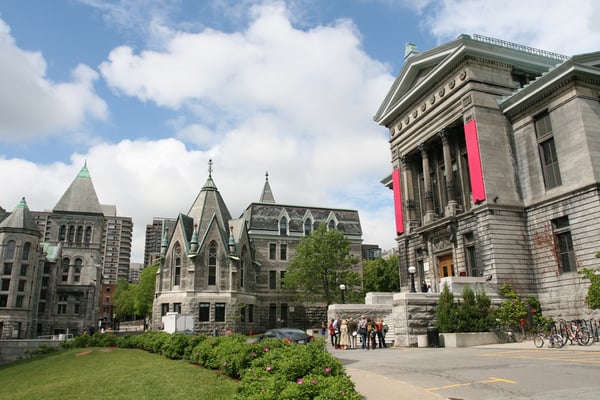BDS rhetoric leaves McGill University’s Jewish students feeling “marginalized, alienated and/or discriminated.”
By Dion J. Pierre, The Algemeiner
A new report issued by McGill University in Montreal has described the Boycott, Divestment, and Sanctions (BDS) movement targeting the State of Israel as a significant contributor to the “polarizing” of debate on campus.
The report, published on Wednesday by the Canadian university’s Initiative Against Islamophobia and Antisemitism (IAIAS), asserted that in the wake of the motion passed in March by the university Students’ Society describing Israel as an apartheid state, both Jewish and Muslim students had been exposed to “experiences that have led them to feel marginalized, alienated, and/or discriminated within our university context.”
“Unquestionably, the most fraught question that emerged within the consultations was whether expressions in support of BDS amounted to discrimination,” the report said. “For many members of the Jewish community, some BDS-related activism — while permissible political expression at the outset — descended into anti-Zionist rhetoric and claims that, for them, were tantamount to antisemitism.”
The report went on to recommend enhancing student knowledge of Judaism and Islam, improving “existing” sensitivity training, and hosting scholarly discussions on the Israeli-Palestinian conflict.
After its release, Hillel Montreal, which serves Jewish students attending McGill University, expressed hope that “this is the start to a better campus life for all McGill students.”
Asaf Romirowsky — Executive Director of Scholars for Peace in the Middle East (SPME), an academic NGO — criticized IAIAS for not acknowledging that BDS was objectively antisemitic rather than, as the report said, something “some members of the Jewish community will experience as antisemitism.”
“Positively, the report acknowledges that BDS is indeed a polarizing factor on campus. Unfortunately, it doesn’t go as far as to identify BDS as antisemitism,” Romirowsky told The Algemeiner. “Consequently, the recommendations do not include the adaptation of the IHRA definition of antisemitism, which includes anti-Zionism and would tackle BDS in all its forms.”
In March, B’nai B’rith Canada, a Jewish advocacy organization, called on the university to defund the Students’ Society for endorsing a boycott of Israel over the objections of its judicial board.
B’nai Brith Canada called the resolution “extreme,” warning that “the document’s language is so broad that it may compel the Students’ Society to boycott virtually all Jewish clubs and associations on campus.”





